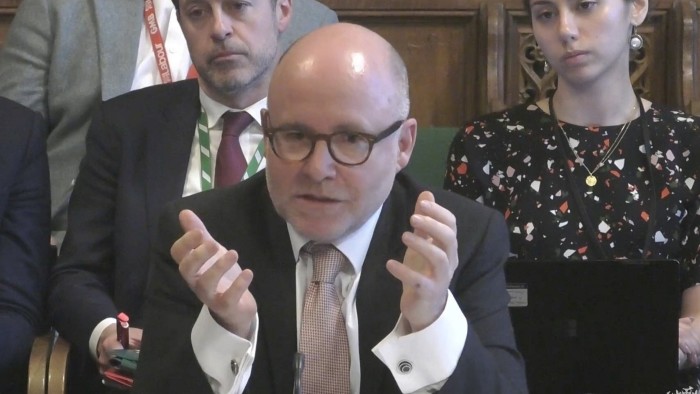Unlock the Editor’s Digest for free
Roula Khalaf, Editor of the FT, selects her favourite stories in this weekly newsletter.
The rule of law and “fabric” of the nation is at risk of “unravelling” because of the level of crime on Britain’s streets, the attorney-general has said.
Lord Richard Hermer told parliament’s joint committee on human rights on Wednesday that the scale of everyday street offences going unpunished was among the biggest challenges facing law and order in the UK.
“I think there is a real risk in this country of our fabric unravelling, and the rule of law unravelling, because of crime on the streets,” he told MPs and peers on the committee.
“I think if you live in a town centre, as many people do at the moment, in which you can watch people go into a shop and steal items from the shelf, walk out of that shop, and nobody does anything . . . That sense of impunity undermines, I think, people’s belief in the rule of law,” he said.
Security guards who “shrug” at such activity and police officers who “won’t do anything if they’re there”, which in turn means “no prosecution” of such crimes, formed part of the issue, he added.
He said it was relevant to his role as chief legal adviser to the government to discuss its plan for “safer streets” through the prism of the rule of law.
Hermer’s intervention comes after the House of Lords justice and home affairs committee warned in November that shop theft was an under-reported crime that is “not being effectively tackled” and is having “a devastating impact on the retail sector and the wider economy”.
The UK retail sector was blighted by more than 20mn incidents of theft in 2023-24, a record high, according to the latest annual crime survey by the British Retail Consortium.
It found that theft was directly costing retailers £2.2bn a year, and warned that organised crime gangs were increasingly involved in the systematic targeting of stores, stealing tens of thousands of pounds worth of goods.
In addition, retailers are investing £1.8bn a year on crime prevention tools, including CCTV, extra security guards and antitheft devices, raising the cost even further, the BRC said.
Labour has vowed to take stronger action to crack down on shoplifting, including by removing the £200 threshold for “low-level” theft, a measure introduced in 2014 that has been criticised for giving a signal to police to deprioritise shoplifting under this level.
Last month, home secretary Yvette Cooper said that a long-standing British tradition of respect for the rule of law had “become badly frayed” by antisocial behaviour, shoplifting and street theft.
Crimes in this sphere had “soared” while neighbourhood police had been “heavily cut back”, she told the House of Commons.




